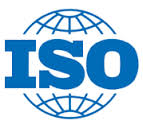In the next issue of BP Trends coming out on July 5th, 2011, you’ll see a story about the success of ThyssenKrupp Steel and their ability to ensure an uninterrupted supply chain through a focus on business process and ISO compliance. One of their very first decisions was to make end-to-end process management the cornerstone for operations in the US’ newest steel mill near Mobile, Alabama. Their approach and the success they’ve had are a subtle but powerful trend that will to continue to gain traction in the coming years.
People often manage careers by developing niche expertise around topics like supply chain and compliance, and ideas that disrupt the ‘niche-ness’ of knowledge can spark significant debate. Today’s Big Data revolution, however, is putting many business concepts on a collision course that puts traditionally disparate ideas under a larger umbrella of operational excellence and business process management. The ThyssenKrupp story is about centralizing the ERP, supply chain, compliance and operations (including training and performance metrics) in such as way that enterprise data is moving in and out of these disciplines without duplication and with a high level of accuracy. The efficiency gains from doing this are very, very convincing.
Supply chain and compliance
Supply chain excellence is about knowing your supplier’s supplier and your customer’s customer. If you look at the fast-moving technology space, Cisco, Intel, Micron and others lead a trend where rapid fluctuations in markets and technologies have led to supply chains that rely external organizations to create just-in-time supplies of parts and even whole products. The risk this creates can be enormous, and requires new systems to manage new risks.
Creating guarantees
 The most direct way to mitigate risk is to demonstrate compliance to recognized standards. That means centralizing and managing large amounts of process and compliance data -exactly what ThyssenKrupp has done. This centralization allows them to aggressively pursue ISO certification without significant time and resource investment, and using the very same systems that manage end-to-end process across the enterprise. The benefits include:
The most direct way to mitigate risk is to demonstrate compliance to recognized standards. That means centralizing and managing large amounts of process and compliance data -exactly what ThyssenKrupp has done. This centralization allows them to aggressively pursue ISO certification without significant time and resource investment, and using the very same systems that manage end-to-end process across the enterprise. The benefits include:
- The ability to ensure their suppliers share their Green commitment and are reducing impact to the environment - ISO 14001 as an environmental management system framework
- Ensuring ThyssenKrupp and their suppliers aren’t running sweatshops or dangerous workplaces that are risky for employees…or can end up in the NY Times with their name attached - ISO 18001 for occupational health and safety
- Mitigating information security risks, threats, vulnerabilities and their impacts - ISO 27001 for information security management
- Proven quality standards - ISO 9001
The new game is to have supply chains that meet these measures of quality and process as the best guarantee against disruption, bad products, bad press and more. As a business relies more on people and behaviors NOT directly under its control, the more standards become the new currency of the contract.
Compliance = Competitiveness
ThyssenKrupp spent $5B to build a steel mill in Alabama to serve primarily the needs of the US automotive industry, and they’ve had remarkable early success in sales. Their best pitch for their commodity product is their ability to prove their excellence through ISO compliance, which in turn promises an uninterrupted supply chain backed by quality, environmental, health, safety, IT and business process standards. ISO certifications are as critical as the plumbing and wiring of the mill. See the Wall Street Journal write up here.
Traditional niche disciplines and their segmented data are on a collision course…centralization of data allows us to manage supply chain efficiency, operations excellence and compliance a single system.




 All Things D
All Things D ARS Technica
ARS Technica Engadget
Engadget GigaOM
GigaOM Mashable
Mashable TechCrunch
TechCrunch The Verge
The Verge Venture Beat
Venture Beat Wired
Wired Chris Brogan
Chris Brogan Brian Solis
Brian Solis Chris Dixon
Chris Dixon Clay Shirky Blog
Clay Shirky Blog HBR Blog
HBR Blog IT Redux
IT Redux Jeremiah Owyang
Jeremiah Owyang Radar O'Reilly
Radar O'Reilly Seth Godin Blog
Seth Godin Blog SocialMedia Today
SocialMedia Today Solve for Interesting
Solve for Interesting The TIBCO Blog
The TIBCO Blog Lifehacker
Lifehacker

Reblogged this on Ovations Group Blog and commented:
Great post from Chris Taylor on the marriage of BPM, supply chain and compliance. We have an interest in all three in our consulting engagements.